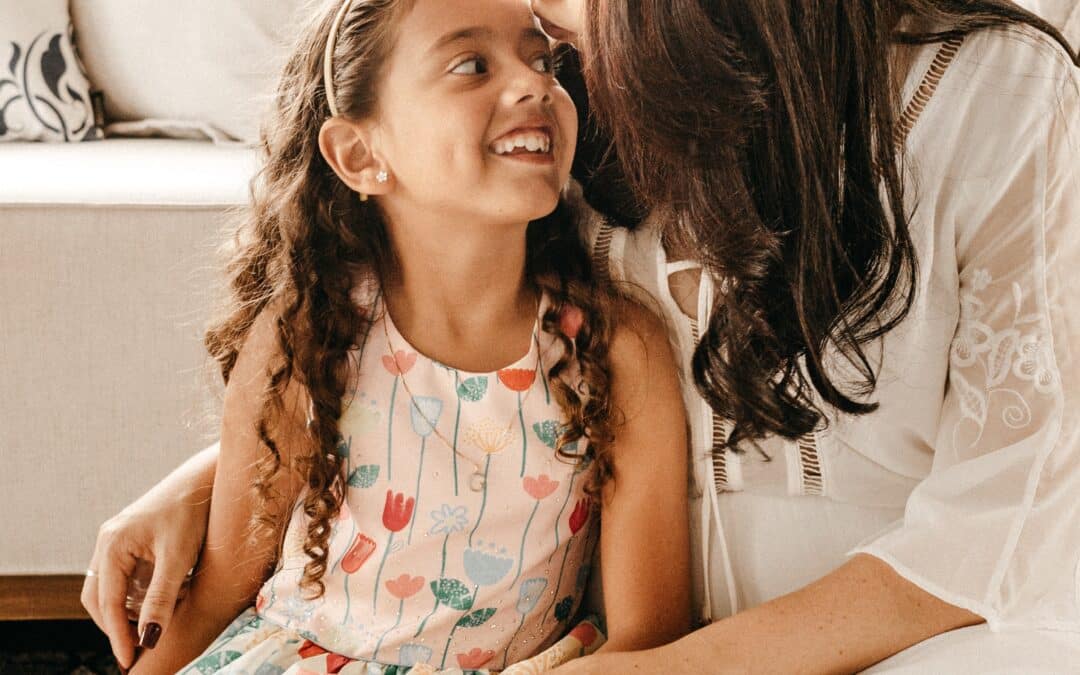At the outset, “what makes a good foster parent?” may seem like a silly question. What makes a good foster parent are the same things that make a good parent. Yet, the question still bears answering. Even if the traits that make a good foster parent are the same as those that make a good parent, what are they?
At Bloom, we are proud to offer high-quality resources for foster families and foster children in metro Atlanta and across Georgia. In our more than three decades of serving Georgia’s foster children, we’ve noticed a few specific traits that all good foster parents seem to share. Continue reading to learn about each one. If you can think of others, tell us about them @BloomOurYouth!
Genuine, Caring Concern for Children
To be a good foster parent, you must have genuine, caring concern for children. It would not be a great idea to open your home to a foster child coping with trauma, insecurities, and fears if you dislike being around children! To provide the safe, nurturing environment foster children need to begin healing and thriving, a good foster parent will be able to open not only their home but also their heart, ears, and mind to the foster child’s needs. There will be moments when that foster child’s needs will have to come before your own, when you have to think to yourself, “It’s not about me right now. It’s about what this child needs to feel safe and valued.” That includes making time for that foster child.
Patience and Flexibility
In the world of foster care, foster families are often at the mercy of the foster care system—a behemoth of bureaucracy, policy, paperwork, and communication chains that always seem to be changing. It is vital that, if you want to be a good foster parent, you can work with the system, not against it, and you need patience and flexibility to do so. Ultimately, the system is in place for the good of the foster children, providing safety measures and accountability. Their rules, procedures, and requirements are not an indictment of you or your ability to parent a child but rather a scaffolding to help ensure the safety and wellbeing of the foster children.
And, bear in mind that your case worker—whether a DFCS case worker, a Bloom Family Consultant, or someone with another organization—is a living, breathing human being. Just as being a foster parent can be difficult and emotionally tasking, so can being the “caseworker” or “Family Consultant” charged with helping multiple foster families navigate the foster care system. Know that you both are working towards the same goal: providing a safe, nurturing home for a child going through a tough time.
Strength of Character
All children can act out from time to time, even when it seems they have all the supports a child might need to lead a happy, healthy life. The occasional sass and attitude is part of growing up—sometimes it is more than occasional, feeling constant and likely overwhelming. One could say it is one way children test boundaries and try to establish their sense of self and autonomy. How many parents have not felt appreciated by their children? It is no less a possibility with foster children. Foster children often cope with abandonment and attachment issues, among many other possible traumas. It may sometimes feel like your foster child is doing everything possible to push you away. To be a good foster parent, you need the strength of character to know that your time and efforts caring for this foster child and creating a safe space for this foster child to be a child, are worthwhile and necessary, whether you see any reward for it—being a foster parent must be its own reward. A good foster parent will keep the faith that the seeds planted today will come to fruition in their own time.
Ability to Provide Stability and Safety
Finally, a good foster parent will be able to provide stability and safety. To move past the trauma that led to their entering foster care—not to mention the trauma inherent in leaving the home they’ve always known to live with a stranger, not knowing when they’ll next see their biological family—foster children need a safe, stable home.
As a good foster parent, you should have a stable source of income. Yes, foster parents receive some financial assistance, and there are free resources like Bloom’s The Bloom Closet for additional support, but these are supports to build on what you can provide, not replace it. A good foster parent will also have emotional stability. Children do not enter foster care because life is going wonderfully. There will be emotional baggage that will weigh on you, and it will be that much harder for you to be the best foster parent you can be if you’re dealing with a myriad of your own emotional challenges.
And, a safe foster home is free of physical and emotional hazards. Not only can good foster parents ensure that the foster children in their care will be protected from physical harm, but they also ensure the home is a place where the foster child can feel safe being vulnerable.
This list is by no means exhaustive. There are many other traits attributable to “good foster parents.” One trait that is not necessary to be a good foster parent is perfection. As human beings, we all have flaws and opportunities for growth. As you consider how the traits detailed above apply to you, I urge you to sign up for one of Bloom’s Foster Parent Information Sessions and get a more in-depth understanding of foster parent expectations and supports before making any final decisions. To sign up or to learn about any of our quality resources for foster children and foster parents in the greater metro Atlanta area, give the Bloom team a call at 770-460.6652

